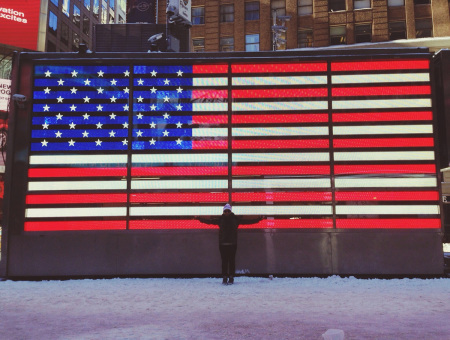Nearly 40% of voters say Democrats, Republicans are America's biggest enemy, not China or Russia

Nearly four in 10 likely voters in the United States say that Democrats or Republicans are the country’s biggest enemy, even when compared to foreign powers such as North Korea and Iran.
In a survey of 900 U.S. likely voters conducted by Rasmussen Reports from Dec. 19 to Dec. 21, 39% of participants named one of the country’s political parties as the nation’s greatest threat compared to 25% who named China.
The survey had a sampling error margin of +/- 3 percentage points with a 95% level of confidence.
Twenty-two percent of those surveyed said that Democrats are the nation’s biggest enemy, and 17% said Republicans, with 5% naming North Korea and another 2% naming Iran. Another 20% think Russia is the greatest threat to America.
When surveying participants that belong to a specific political party, 33% of Republicans said that Democrats are America’s biggest enemy, compared to 26% of Democrats who think that Republicans are the greater enemy.
Another 39% of voters not affiliated with any of the two political parties think Democrats (21%) or Republicans (18%) are the country’s biggest enemy.
The share of voters who see certain political parties as the country’s biggest threat appears to have increased since Rasmussen conducted a similar survey two years ago.
In that survey, 24% of participants viewed people who voted for Joe Biden as America’s biggest enemy, compared to 22% who regarded those who supported Donald Trump as the country’s biggest enemy.
In the most recent survey, Democrats (31%) were more likely to see Russia as the biggest enemy, while 16% said China. On the contrary, Republicans (35%) were more likely to view China as America’s biggest enemy, while only 12% named Russia.
Opinions varied by gender, as 26% of women named China America’s biggest enemy compared to 24% of men. Twenty percent of women regarded Russia and Republicans as the greatest enemy to the country, while 19% of men said Russia and 15% named Republicans.
Another 18% of women view Democrats as the country’s biggest enemy, compared to 27% of men.
Age also appears to have had an impact on voters’ perception of who is the country’s worst enemy. For those under 40, 28% said Russia is America’s biggest enemy, while older voters think China is the greater enemy.
Participants in the under-40 category are equally likely to see Republicans or Democrats as America’s biggest enemy. Older voters believe Democrats are the biggest enemy by a 7-point margin.
The responses to the survey differed among racial categories as well, as 28% of white respondents said China was America’s biggest enemy compared to 15% of black voters. Twenty-three percent of other minorities who participated in the survey also named China the country’s biggest enemy.
In addition, black voters were significantly more likely to see Republicans as the country’s biggest enemy.
Income levels appear to have been relevant to participants’ responses, with voters making over $200,000 a year more likely to view Republicans as America’s biggest enemy. Participants earning between $50,000 and $100,000 annually were more likely to view China as the bigger enemy of the country.
Strong supporters of President Biden were the least likely to view China as the country’s biggest enemy. Among those who strongly approve of Biden’s job performance, only 11% named China the biggest enemy, while 38% think Republicans are the biggest enemy.
In the category of voters who strongly disapprove of Biden’s job performance, 40% said that China is America’s biggest enemy, and 44% think the same about Democrats.
As The Christian Post reported, a survey of 1,000 Americans released in November by Lifeway Research found that 50% of Protestants prefer to attend a politically homogenous church, while 41% disagreed and 10% were uncertain.
Samantha Kamman is a reporter for The Christian Post. She can be reached at: samantha.kamman@christianpost.com. Follower her on Twitter: @Samantha_Kamman





















